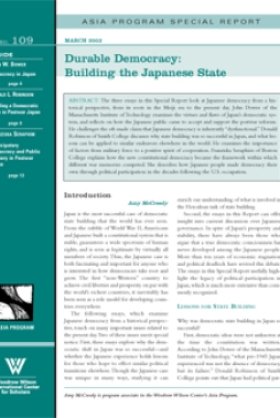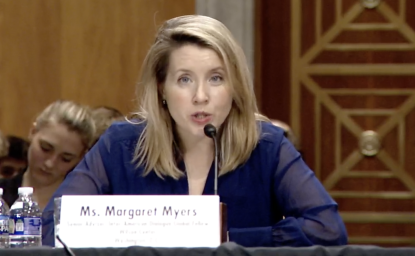Durable Democracy: Building the Japanese State


The three essays in this Special Report look at Japanese democracy from a historical perspective, from its roots in the Meiji era to the present day. John Dower of the Massachusetts Institute of Technology examines the virtues and flaws of Japan’s democratic system, and reflects on how the Japanese public came to accept and support the postwar reforms. He challenges the oft-made claim that Japanese democracy is inherently “dysfunctional.” Donald Robinson of Smith College discusses why state building was so successful in Japan, and what lessons can be applied to similar endeavors elsewhere in the world. He examines the importance of factors from military force to a positive spirit of cooperation. Franziska Seraphim of Boston College explains how the new constitutional democracy became the framework within which different war memories competed. She describes how Japanese people made democracy their own through political participation in the decades following the U.S. occupation.

Indo-Pacific Program
The Indo-Pacific Program promotes policy debate and intellectual discussions on US interests in the Asia-Pacific as well as political, economic, security, and social issues relating to the world’s most populous and economically dynamic region. Read more

Explore More
Browse Insights & Analysis
Myanmar’s Junta and the 2026 Elections: A Fig Leaf for Legitimacy?

Climate Change, Peace and Security: Discourse Versus Action in Asia

